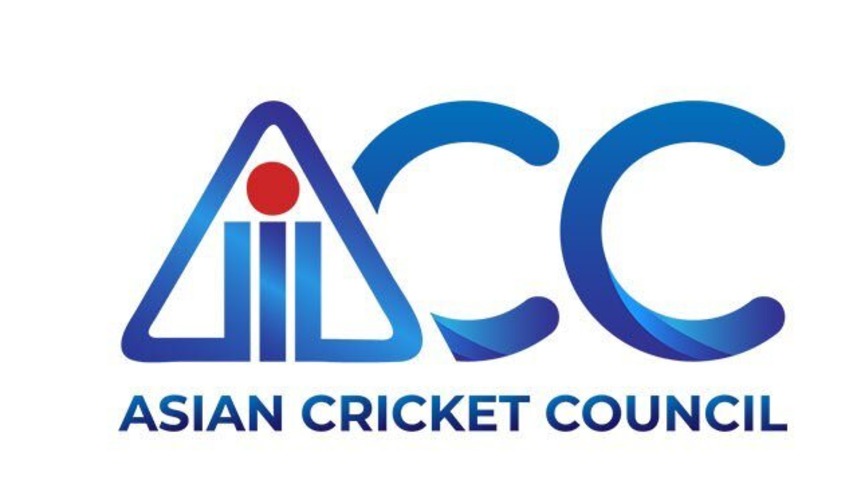- Wed, March 16, 2022

Loading

Loading

BCCI Appoints Rajeev Shukla and Ashish Shelar to ACC Board After Jay Shah’s ICC Elevation
Leadership Transition Strengthens BCCI’s Influence in Asian Cricket
The Board of Control for Cricket in India (BCCI) has announced key updates regarding its representation on the Asian Cricket Council (ACC) Board of Directors, following a significant leadership change. With Jay Shah taking over as the Chair of the International Cricket Council (ICC), his position on the ACC Board became vacant, requiring new appointments to ensure BCCI’s continued role in shaping cricket governance in Asia.
To fill this void, the BCCI has appointed Rajeev Shukla as an Executive Board Member on the ACC Board, while Ashish Shelar will serve as the Ex-Officio Board Member. These appointments reaffirm the BCCI’s commitment to playing a pivotal role in the development and administration of cricket in Asia.
BCCI’s Representation in ACC: A Strategic Move
With the Asian Cricket Council responsible for promoting and strengthening cricket across the continent, the BCCI’s influence in the ACC is crucial. Jay Shah’s tenure as ACC President was marked by significant advancements, including the successful execution of the Asia Cup and fostering strong bilateral relations between cricketing nations in the region. Now, as he steps up to lead the ICC, his former role within the ACC had to be filled by experienced administrators who can continue the momentum.
The decision to appoint Rajeev Shukla and Ashish Shelar aligns with BCCI’s strategy of ensuring that individuals with deep-rooted experience in cricket administration are at the helm of decision-making within Asian cricket.
Who Are the New BCCI Representatives in the ACC
Rajeev Shukla – Executive Board Member
A seasoned cricket administrator and veteran politician, Rajeev Shukla has been a prominent figure in Indian cricket governance for years. He has previously served as the Vice President of the BCCI and has played a significant role in organizing major cricketing events, including the Indian Premier League (IPL). His appointment to the ACC Executive Board ensures that BCCI retains a strong voice in shaping policies and cricketing initiatives across Asia.
Shukla’s experience in handling administrative affairs and his extensive political network make him an ideal candidate to drive ACC’s objectives of cricket development and expansion.
Ashish Shelar – Ex-Officio Board Member
Currently serving as the Treasurer of the BCCI, Ashish Shelar brings a wealth of financial and strategic expertise to the ACC Board. His background in sports administration and financial planning will be instrumental in strengthening the ACC’s operations, ensuring that cricketing infrastructure and grassroots development programs continue to flourish across Asian nations.
Shelar’s influence will be vital in expanding the commercial success of Asian cricket, particularly in the wake of growing viewership and financial investments in the sport across the region.
The Role of the ACC and Its Impact on Asian Cricket
The Asian Cricket Council (ACC) plays a key role in the governance of cricket in the region. With major cricketing nations like India, Pakistan, Sri Lanka, Bangladesh, and Afghanistan under its umbrella, the ACC’s policies significantly impact the game’s growth at both international and grassroots levels.
Over the years, the ACC has been instrumental in organizing the Asia Cup, which remains one of the most competitive and widely followed tournaments in world cricket. The council also works towards developing emerging cricketing nations in Asia, providing funding, coaching programs, and infrastructural support to countries like Nepal, UAE, and Oman.
With Shukla and Shelar now representing BCCI on the board, India’s influence in these developmental activities is expected to remain strong, ensuring that the best interests of Indian and Asian cricket are prioritized.
What This Means for the Future of Cricket in Asia
The transition in leadership within the ACC comes at a time when cricket in Asia is at a pivotal stage. With new formats like T10 leagues gaining popularity, and efforts being made to expand cricket to non-traditional markets, the decisions made by the ACC Board will have long-term implications.
Additionally, discussions around scheduling future bilateral series between Asian nations and the impact of global franchise leagues on international cricket will be high on the agenda for the ACC leadership. With India’s strong financial and infrastructural backing, the BCCI representatives will play a crucial role in ensuring that these discussions lead to sustainable cricketing policies.
BCCI’s Continued Commitment to Cricket Development
The BCCI has long been a key driver of cricket’s success in Asia. From organizing high-profile international tournaments to promoting emerging talent, India’s cricket board remains at the heart of the sport’s evolution.
The appointments of Rajeev Shukla and Ashish Shelar reflect BCCI’s unwavering focus on maintaining leadership in the cricketing landscape. With Jay Shah now at the helm of the ICC, India’s influence in world cricket governance has further solidified, positioning the nation as a global powerhouse in shaping the future of the sport.
Final Thoughts
As cricket in Asia continues to grow, the roles of organizations like the ACC and the BCCI become even more significant. With the Asia Cup, emerging cricketing nations, and the future of bilateral series on the agenda, the newly appointed BCCI representatives will have a crucial role to play.
The appointments of Rajeev Shukla and Ashish Shelar to the ACC Board ensure that India remains a driving force behind cricket’s expansion in Asia. Their combined experience in administration, finance, and governance will help in fostering continued growth, ensuring that Asian cricket remains competitive, financially robust, and globally relevant.
Comments:
Leave a Reply